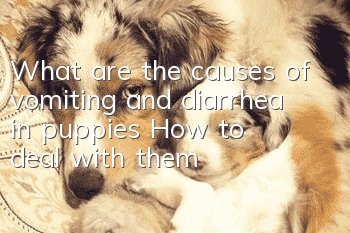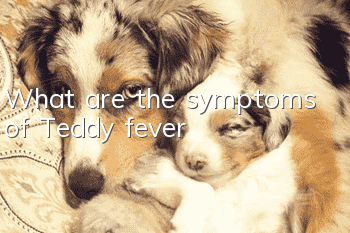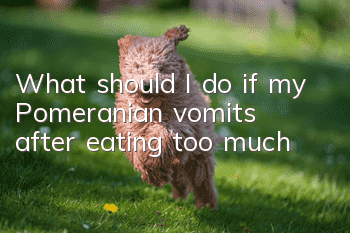What are the causes of vomiting and diarrhea in puppies? How to deal with them?

The puppy was vomiting and having diarrhea, and the owner was very worried. First of all, we should judge the dog’s symptoms and then prescribe the right medicine. So what are the causes of vomiting and diarrhea in dogs? How to deal with them?
Vomiting and diarrhea in dogs: 1. Canine parvovirus
Check whether there is a fishy smell in the dog's vomiting and diarrhea, and whether there is blood. If there is, it is likely to have canine parvovirus. Please take the dog to the hospital immediately. treat.
Vomiting and diarrhea in puppies: 2. Parasites
Dogs suffer from vomiting and diarrhea, lose weight, lose appetite, and have jelly-like stools with blood streaks. You can even find worms in your poop, which indicates that your dog may have parasites in his stomach. At this time, the owner needs to deworm the dog and feed Bayer or Baichongqing according to the dosage instructions. In addition, regular deworming is required. It is recommended that puppies before six months of age should be dewormed once a month, and adult dogs after six months of age should be dewormed once every three months.
Puppy vomiting and diarrhea 3. Food poisoning
If the owners find that the dog is vomiting, has diarrhea, does not eat, and only drinks a little water, If your dog is often trembling or even unable to stand still, your dog may have food poisoning. For dogs with food poisoning, owners can give more water to dilute the toxic substances. If the situation is serious, it is best for owners to take their dogs to a pet hospital for gastric lavage. In normal times, owners can also feed their dogs probiotics and other nutritional supplements to improve their gastrointestinal function.
Puppy Vomiting and Diarrhea 4. Indigestion
The dog’s gastrointestinal function is very weak. If the owner’s feeding time and frequency are irregular, or Frequently feeding irritating food will make it difficult for the dog's stomach to bear such a load, which will cause the dog to vomit, have diarrhea, and even become dehydrated. In this regard, the owner should adjust the time and frequency of feeding. It is best to eat small meals frequently to allow the dog's stomach to eat regularly. Probiotics can also be added to dog food to promote digestion and absorption.
As dogs grow, some minor problems and emergencies are inevitable. What should I do if my puppy has vomiting and diarrhea? Owners should not be anxious when encountering these situations, calmly consider what may be the cause of the emergency, and then prescribe the right medicine.
- A qualified poop scraper should know that these foods cannot be given to dogs.
- How to treat canine distemper in dogs quickly
- Is Husky’s fur good? The good thing?
- Precautions for dogs with colds
- Dog first aid knowledge, essential skills for poop shoveling!
- What are the methods to restore Doberman Pinscher’s ear cropping? What should you pay attention to when cutting ears?
- Dog vaccination time
- How to play with dogs
- Colorful and beautiful, be careful when dyeing your dog’s hair!
- What food do Samoyed dogs eat?



